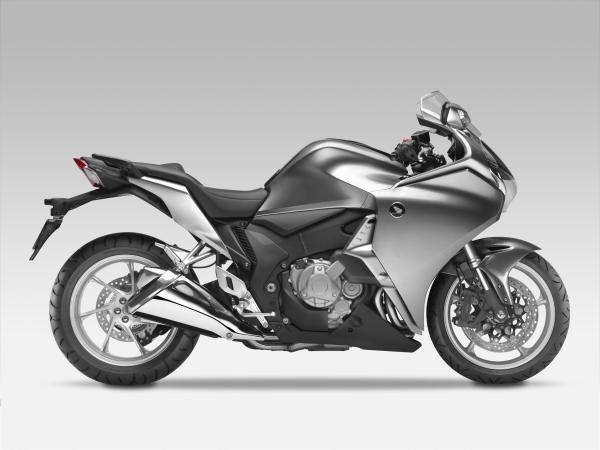VFR1200F DCT (2010 - present) review
There are some things that even nostalgia can’t fix: double-denim, the mullet, Hondamatic. No matter which way you look at it, there was no excuse for any of them.
Honda’s semi-automatic gearbox technology was designed for cars but introduced for bikes in 1976 with the CB750A and it was a disaster, paving the way for a universal loathing of automatic gearboxes that lasts to this day.
There are some things that even nostalgia can’t fix: double-denim, the mullet, Hondamatic. No matter which way you look at it, there was no excuse for any of them.
Honda’s semi-automatic gearbox technology was designed for cars but introduced for bikes in 1976 with the CB750A and it was a disaster, paving the way for a universal loathing of automatic gearboxes that lasts to this day.
The Hondamatic gearbox featured two gears, so progress was at best, sluggish even with a 750cc engine. There was no clutch lever, but there was a gear lever so you’d still select the gear with your left boot; the action was much like that of a Honda C90.
Automatic gear changing questioned your masculinity. The Hondamatic failed to appeal to rough tough ’70s bikers who liked their gearboxes full of gears, their gear changes manual and their clutch levers present and correct.
Hondamatic fizzled out in 1983, after Honda launched a series of smaller capacity machines using a parallel-twin 400cc engine. The technology was the same and they were never accepted.
It wasn’t until 2006 that a mainstream manufacturer made another attempt to bring automatic to the people. Yamaha’s flagship sports tourer, the FJR1300AE featured semi-automatic transmission based around a manual gearbox. It was called Yamaha Chip Controlled Shift (YCC-S). A computer controlled clutch and push-button gearshift replaced the clutch lever.
The trouble with the FJR1300AE is that it took off where Hondamatic left and didn’t introduce enough technology to make people stop and take notice.
It was technology for technology’s sake and was never well received by the press. The FJR1300AE was crucified for hampering low speed control. Like the Hondamatic, it’s semi-automatic gear shifting solved a problem that no-one had. We still liked changing gear ourselves. We may not have been as smooth as a computer microchip, but it added to the involvement. The FJR1300AE appealed to a minority but left most first-time riders feeling cold.
There are some things that even nostalgia can’t fix: double-denim, the mullet, Hondamatic. No matter which way you look at it, there was no excuse for any of them.
Honda’s semi-automatic gearbox technology was designed for cars but introduced for bikes in 1976 with the CB750A and it was a disaster, paving the way for a universal loathing of automatic gearboxes that lasts to this day.
The Hondamatic gearbox featured two gears, so progress was at best, sluggish even with a 750cc engine. There was no clutch lever, but there was a gear lever so you’d still select the gear with your left boot; the action was much like that of a Honda C90.
Automatic gear changing questioned your masculinity. The Hondamatic failed to appeal to rough tough ’70s bikers who liked their gearboxes full of gears, their gear changes manual and their clutch levers present and correct.
Hondamatic fizzled out in 1983, after Honda launched a series of smaller capacity machines using a parallel-twin 400cc engine. The technology was the same and they were never accepted.
It wasn’t until 2006 that a mainstream manufacturer made another attempt to bring automatic to the people. Yamaha’s flagship sports tourer, the FJR1300AE featured semi-automatic transmission based around a manual gearbox. It was called Yamaha Chip Controlled Shift (YCC-S). A computer controlled clutch and push-button gearshift replaced the clutch lever.
The trouble with the FJR1300AE is that it took off where Hondamatic left and didn’t introduce enough technology to make people stop and take notice.
It was technology for technology’s sake and was never well received by the press. The FJR1300AE was crucified for hampering low speed control. Like the Hondamatic, it’s semi-automatic gear shifting solved a problem that no-one had. We still liked changing gear ourselves. We may not have been as smooth as a computer microchip, but it added to the involvement. The FJR1300AE appealed to a minority but left most first-time riders feeling cold.










